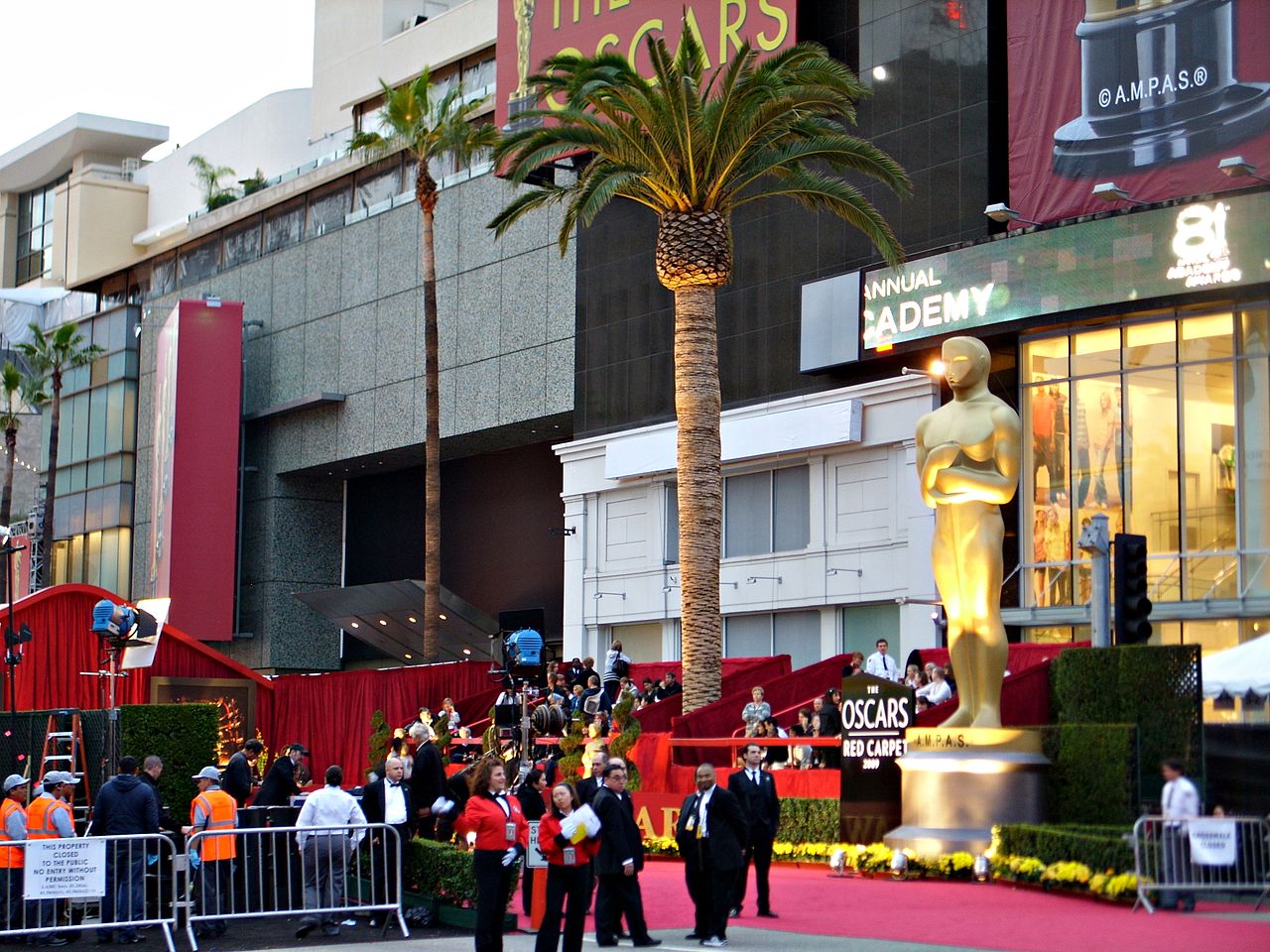In Favor
William Singh
When addressing this difficult subject, it is usually taken as the default position that a reprehensible human being ought not to win an award for their work. I suspect that’s not least because nobody wants to stand up and say they support those individuals winning, and they are certainly easy to condemn.
There’s a problem, though: I’m never quite clear what the precise argument is as to why we ought to take personal lives into account.
Do we begrudge the accountant who may be really very good at sorting finances, while also being a distant father, an unloving husband and a tax-dodging free-rider?
Certainly we’re probably inclined to dislike them as a human being, but would we say they should not be allowed to do their job?
There are three relevant answers here:
1 – yes, they should not do their job, because tax-dodging ought to be against some hippocratic oath of accountants in particular.
2 – yes, we ought to care, but their lives are less public so we don’t know, and awards less dependent on our public adoration so we are less the agents
3 – no, we don’t care but we should for artists because there’s something special about art.
The first is reasonable enough and we may be inclined to agree. But there is a clear and direct link here between the nature of the ‘offense’ committed and the professional reputability of the accountant. I challenge anyone to provide the same link in the case of art and artists. It seems to me to be quite the opposite case being made when we say reprehensible individuals should not win awards – we’re actually arguing that even if they have produced a quality piece of work they ought not to win. We are saying that despite and irrespective of their artistic achievement purely because of personality – at which point we have already separated creative work from personality in a way that rules out the tax-dodging accountant analogy. There is no direct link between personality and art that we can rely on.
So we might make the second argument: we would, if we could, punish all accountants, lawyers, street-sweepers and artists alike for their personal lives. I won’t dwell on this point because I don’t think it is the most commonly made – but a word of caution is useful. A quick glance at social media feeds is evidence enough for the outrage-mob culture we’ve created for ourselves. I ask only whether the reader feels it is right that for errors of judgement in their own pasts they should be submitted to that level of vitriol whenever they try to do anything with their lives again. Ought we to suppose that anyone who has committed a crime, however bad, should be condemned to permanent unemployment? That seems indefensible.
So the third argument – there is something special about art which makes personal lives inseparable from creative work in a sense beyond that of ordinary professional work. This may seem intuitive, but I would simply ask the reader what that something is.
Is it because art is a creative enterprise, with artists pouring their soul into their work and as such the work is a reflection of the individual? Given the nature of the filmmaking process – a script will go through countless people, both artists and corporates, and then via a director, photographer and so on, plus a whole cast of actors – I find it hard to accept the idea that a film reflects intimately the personality of one actor. And in any case, ‘creativity’ is surely applied in a vast number of areas.
Is it because art is inherently public? This, I think, gets to the most common argument – artists are role models, awards confer society’s endorsement, so they shouldn’t be seen to endorse behaviour.
But I would ask if in following that logic we aren’t ourselves contributing to a state of affairs we allegedly oppose. Celebrity culture hero-worship is itself a detrimental role model effect. The assumption that successful people are good people, and only good people are successful, is clearly incorrect and even more clearly unhealthy. If we are going to criticise the hero-worship of celebrities, we really ought not to perpetuate it. Viewing artistic achievement or awards as personal commendations does just that. They are not. They are no more than recognitions on the part of private industry-representing bodies of technical achievement. We should break down the assumption that people of achievement are aspirational personalities. Personal endorsement should not be conferred by award recognition, and neither should it be soon to do so.
In fact, I would suggest that the public is far more self-aware that artists are not behavioural role models than we often give them credit for. Arguably even more attention has been drawn to the reprehensible character of certain individuals precisely by award nomination than could possibly have been understood by public ignorance.
The simple point of conclusion is this: there is no need for a connection between professional work and personal life. That applies as much to creative enterprise. If you, as an individual, decide that the creative output of a particular artist is undermined by that artist’s personal life, you might of course take against it, or even boycott that artist. But when you say that, for example, awards should only be conferred where the creative and the personal are both to be commended, you are in effect saying that despite and irrespective of the quality of creative output, personality should be a deciding factor in evaluating art. That is very simply a level of analysis which need not exist, and we should be capable of understanding what it is to praise the technical or aesthetic achievement of a work of art independent of associated artists.
Against
Amy Johnson
The personal life of an artist is intrinsically linked to their work. The performances of actors and the works of artists are drawn from their own personal experiences. Routinely artists will tell their audience this, that their work was crafted from their own personal experiences with pain, joy, anger etc. Therefore, to prise the two apart just because it begins to spoil our idealised view of an artist is unfair. This is not to say that artists and actors cannot have a private life of their own, but when they act abhorrently in private, it should be part of the public consciousness.
Casey Affleck received allegations of sexual harassment seven years ago, from two of his female co-workers. Affleck was never convicted for any crimes, as the cases were settled out of court yet this does not mean that allegations of abuse and harassment should not be dismissed.
Brie Larson’s refusal to clap Casey Affleck’s win of Best Actor in a Leading Role at the Oscars has been seen as silent protest from the actress against his victory. Whilst it can be said that this was an admirable move on behalf of Larson who knew she would be open for international criticism, Casey Affleck should have never been nominated in the first place.
Women who accuse men of abuse are routinely doubted and blamed. Amber Heard faced the vitriol of Johnny Depp fans when she claimed that he physically abused her. Yet this case, like many in Hollywood, is a case of a wealthy white women and if they aren’t believed, if they are blamed, what kind of message does this send to other women, to working class women, to women of colour, if they need to report abuse? Men continue to walk away with an untarnished reputation after ruining women’s lives.
However, the issue is a precarious one. It would be ignorant to suggest that people can’t change and rehabilitate and deserve to have a second chance. Those who have spent time in prison and return to society reformed deserve jobs and access to tools to help to better themselves. Just because someone has a past this does not mean we should write them off entirely. However, there are key differences between someone like Casey Affleck and other men accused of abusing women. Affleck is arguably an attractive man with a powerful name in Hollywood. He has a name and an arguably conventionally attractive face to mask his allegations with.
Affleck is just one man in long line of Hollywood stars whose abuse against women has not stopped them from having a career. Sean Penn, Woody Allen, Eminem: all of these men have been accused of assaulting women without it having any impact on their careers. What differentiates these men is that they are in the public eye, they are people to made an example of and time and time again nothing is done to combat the epidemic of the abuse of women. One particularly disturbing example is a Barbara Walters interview where legendary actor Sean Connery says out loud, fully aware he is being recorded, with regard to hitting women: ‘I don’t think it’s bad, and I think it depends entirely on the circumstances, and if it merits it’. Sean Connery has a knighthood.
People willing to ignore the questionable and troubling behaviour of actors because if it spoils their ability to enjoy what they are consuming. Not to mention Hollywood, who would never make a pariah of an actor they consider to be highly bankable. To hear that one’s idol has been creeping into bed with women without their consent, as per Affleck’s allegations, is troubling. Blocking it out is far easier for some than accepting the worrying truth. People who we admire and who are internationally revered do bad things, terrible things, but they are things we cannot ignore.
It is already horrific that the President of the United States, Donald Trump, who holds one of the most important jobs in the world is misogynistic and has received numerous allegations of sexual abuse from women. To revere people in their work is to condone their behaviour outside their job. So often are women told that allegations can ruin a man’s reputations, but how can this be true when so many men continue to achieve greatness after being abusive?
To award Casey Affleck with an Oscar, the most esteemed accolade in his field of work, is an insult to every woman who has ever been a victim of abuse at the hands of men.
Featured Image: Wikimedia Commons





